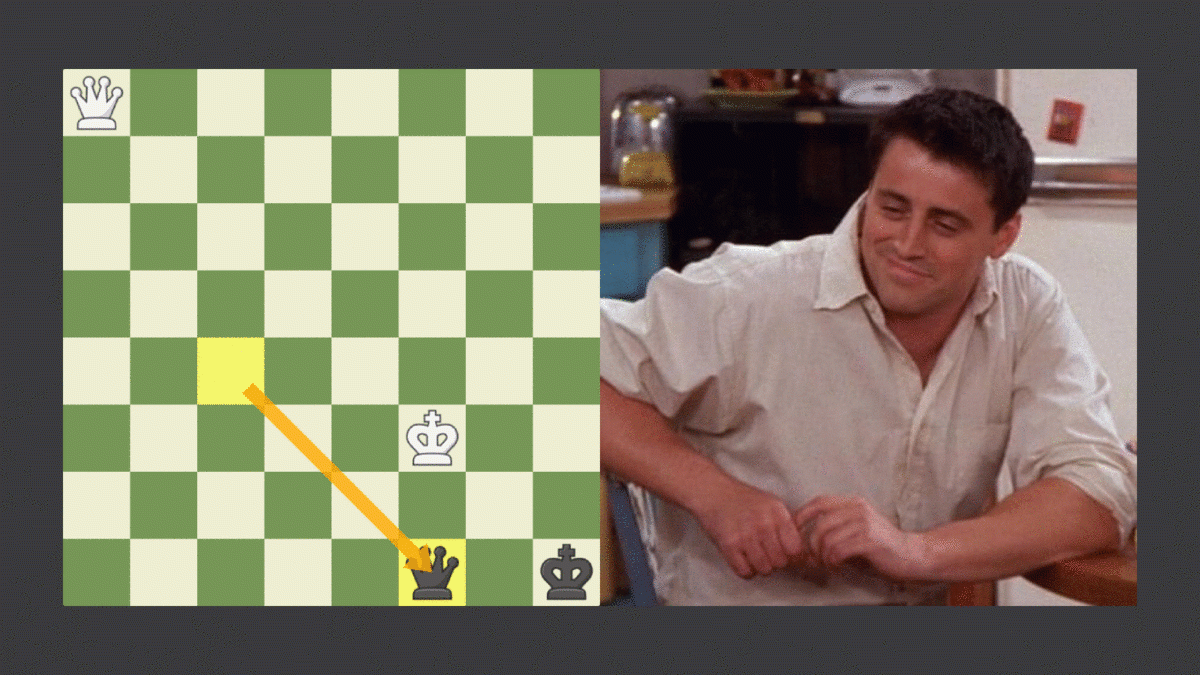
The Treacherous Cross-Check
It is not a secret that most inexperienced chess players love checks. I guess it makes them feel empowered. This is why GM Bobby Fischer famously said: "Patzer sees a check, gives a check." I am not going to discuss here the obvious point that just like any other move, a check can be good, bad, or horrible.
The goal of this article is to warn players who may be blindsided by the deceptive feeling of being in control just because they check an opponent's king. There is an uncommon, but very treacherous defense, which can immediately decide the game. I am talking about a cross-check, or counter-check.
"A counter what?" some people may ask. Yes, surprisingly many players are not aware of this possibility in chess. Some time ago there was even a discussion in our forums about whether it is even legal to check an opponent when your own king is in check.
Yes, counter-checks are perfectly legal in chess. Just don't do them the way GM Ernesto Inarkiev did:
Here, the 2016 European Champion played 27...Ne3+!! Strictly speaking, this move shouldn't get a double-exclam, or any sign for that matter, since the move is absolutely illegal. But think about it: If a move lets you beat the world champion from a lost position, doesn't it deserve the "!!" notation? Yes, Inarkiev was a proud winner of this game for about an hour (you can read the full story here).
Now let me show you how to counter-check legally. The following position, composed by G. Ponzetto, must be the world record as both sides trade 37 consecutive checks!!
This position is just a funny demonstration of how counter-checks can be played legally, but it has nothing to do with real chess.
However, the next example is a good one of using a counter-check as a deadly weapon.
I don't want you, my dear readers, to get the impression that counter-checks happen only in composed positions. The following game was played by two very strong grandmasters:
Our older readers might remember the controversy that happened in 1995 when Batsford Ltd. decided to publish an algebraic edition of Fischer's iconic book My 60 Memorable Games. For some mysterious reason, the publisher decided to edit his annotations. Fischer was furious, and rightfully so. I am not an expert and cannot judge if it is legal to edit an author's words without his consent, but in any case, the traditional practice of editorial footnotes is far superior.
Judge for yourself. Here is the position from game 35 vs. GM Julio Bolbochan:
As you can see, in his annotation Fischer provides a variation that leads to a completely winning position for White. Batsford decided to "improve" Fischer's original analysis, and here is how it looked there:
I have no doubt that our observant readers have already spotted the mistake in the edited version of Fischer's analysis. Fischer claimed that all the book's alterations were done intentionally in order to make him look like a fool. Well, you can accuse Fischer of many things, but nobody in his right mind would call him a fool who doesn't know how to play chess. As a matter of fact, in one of his games, Fischer used the idea missed by the publishers of his book:
Now let me show you a little chess mystery:
Say you found this game in a database. Can you possibly explain White's last two suicidal moves? I think it is absolutely impossible unless you know what actually happened. Since one of the players was my student, here is the actual story:
Strictly speaking, this game is not an example of a counter-check, but the idea is very similar to the one missed by the publishers of Fischer's book. And just like in that case, a missed opponent's check turns a completely winning position into a loss!
The lesson is quite simple. When you execute a combination and check your opponent's king, you might feel like Jack Dawson yelling "I am the king of the world!"
Be careful though, the iceberg (a counter-check) could be nearby!
Have you ever delivered a game-ending cross-check? Let us know in the comments below!






